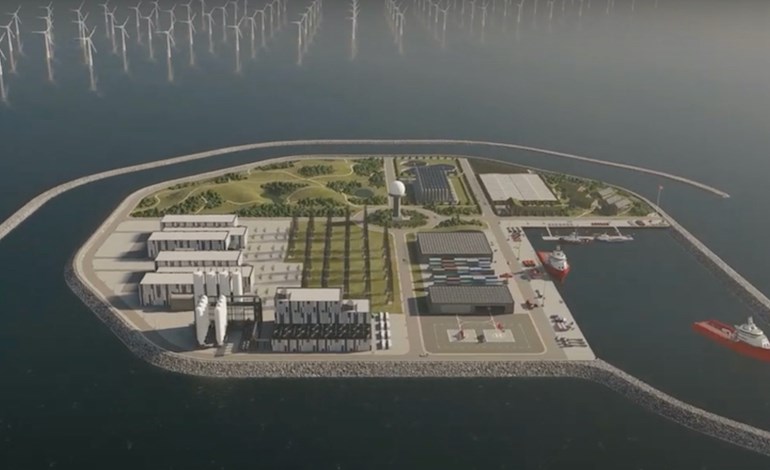Denmark has reached a landmark agreement on the construction of an energy hub in the North Sea. The energy hub will be an artificially constructed island 80 kilometres from the shore of the peninsula Jutland. It will be owned by a public-private partnership. The hub will strengthen the integration of Europe’s power grids and increase renewable electricity production necessary for a cli-mate neutral Europe.
Denmark has introduced a cutoff date of 2050 for oil and gas extraction in the North Sea and cancelled all future licensing rounds. By agreeing on the construction and ownership of the world’s first energy hub in the North Sea, Denmark takes another significant step in the green transition. The energy hub will produce yet unseen amounts of green electricity and is one of the government’s flagship projects for the green transition in Europe. Fully implemented it will be able to cover the consumption of 10 million European households.
”This is truly a great moment for Denmark and for the global green transition. This decision marks the start of a new era of sustainable energy production in Denmark and the world and it links very ambitious climate goals with growth and green jobs. The energy hub in the North Sea will be the largest construction project in Danish history. It will make a big contribution to the realization of the enormous potential for European offshore wind, and I am excited for our future collaboration with other European countries”, says the Danish Minister for Climate, Dan Jørgensen.
The energy hub will serve as an offshore power plant gathering and distributing green electricity from hundreds of wind turbines surrounding the island directly to consumers in countries surrounding the North Sea. The island is expected to have a total area of at least 120.000 square meters and in its first phase it will be able to provide 3 million European households with green energy. The project will be a public private partnership between the Danish state and private companies. The State will own the majority of the island, but private companies will be crucial for the project to fulfill the potential as regards to innovation, flexibility, cost effectiveness and business potential.





